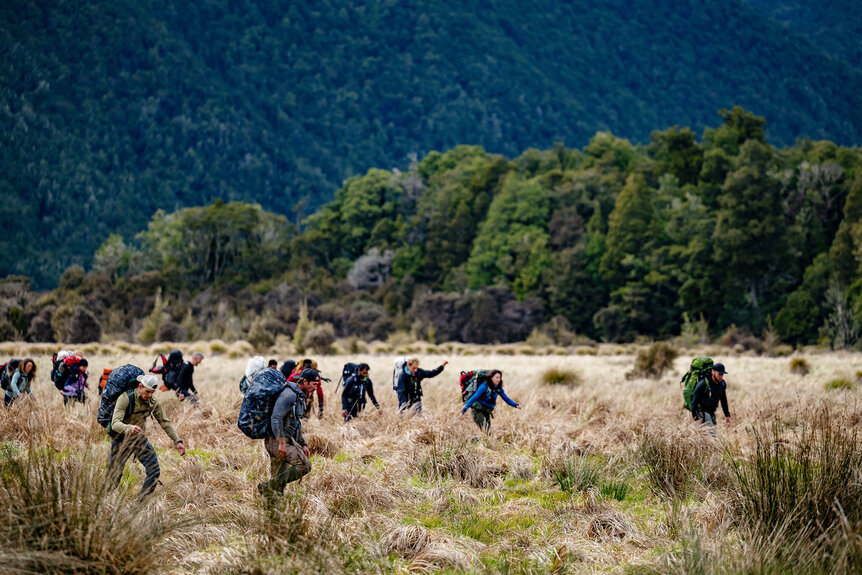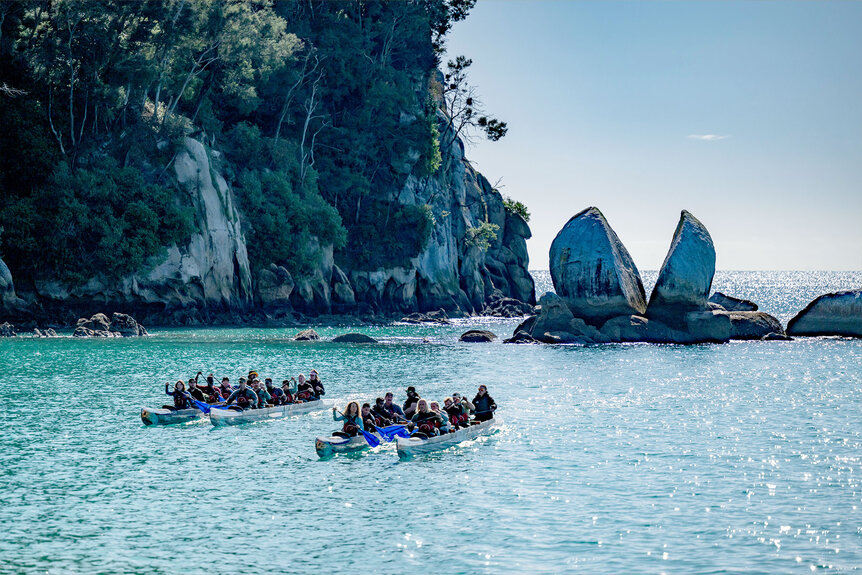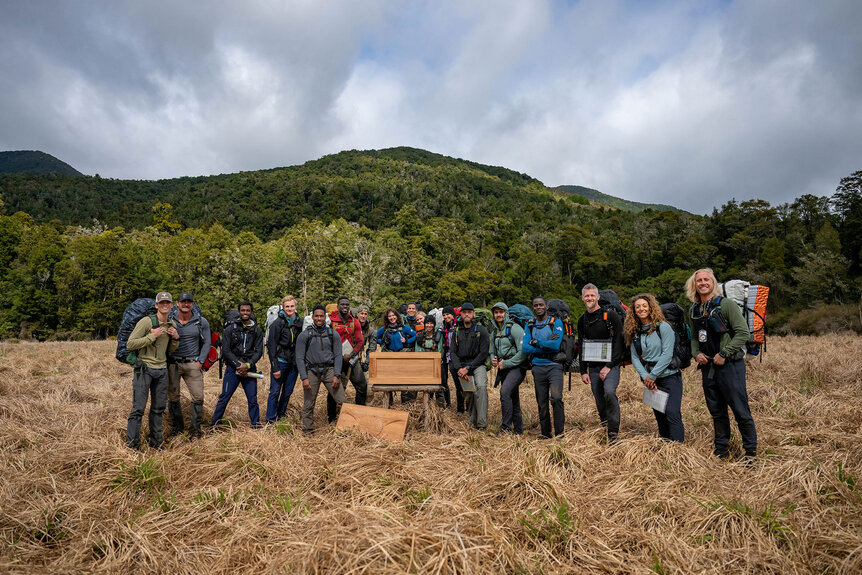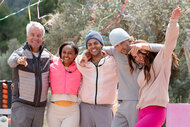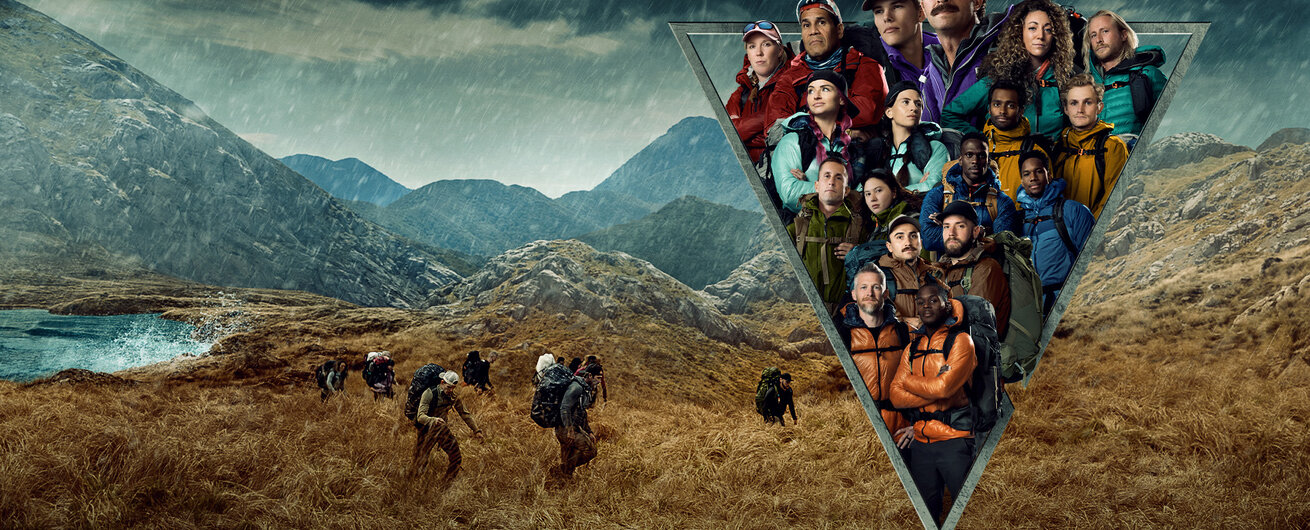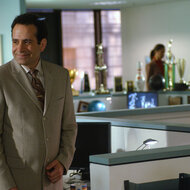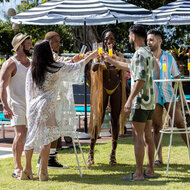Coree & Jeff Detail the Head Injury & Challenges That Took Them Out of Race to Survive
Two unexpected knocks on the head took out the ultramarathoning team on the latest Race to Survive: New Zealand.
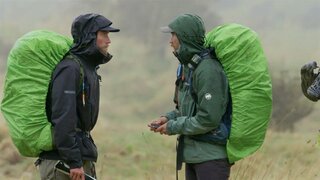
Spoilers for Race to Survive: New Zealand Episode 5
On paper, one of the teams on Race to Survive: New Zealand with the most potential to make it to the end was ultramarathoning buddies "Jeff” Watterson Jr. and Coree Woltering. With Coree's legendary status in the elite ultrarunner community and his personal mentoring and training of Jeff, they were a team with personal grit and the kind of tight, established friendship that wasn't fraught with race-slowing friction.
More on Race to Survive: New Zealand:
Where to Watch Race to Survive: New Zealand: Cast & Extreme New Stakes Explained
Here's Where to Follow the Race to Survive: New Zealand Competitors on Social
Mikhail & Steffen Confirm What Tanked Their Race to Survive: New Zealand Game
But then two unexpected falls for Coree that injured his head turned into the unforeseen "surprises" that neither competitor factored into their race strategy. When Coree's headache pain slowed the pair down to last place with no opportunity for recovery on the trail, they made the call to bring their race to an end in Episode 5.
USA Insider got on a Zoom with the pair to find out how bad Coree's injury got and what they personally overcame in their three legs of the race.
Coree and Jeff admit that New Zealand was not what they expected
First off, Jeff and Coree said they didn't know they were going to New Zealand until closer to their flight. And then when they were told, neither had a real sense of the weather or terrain they would be facing, as it was a new continent for both of them to experience.
"When I think of New Zealand, I guess I thought of warmer weather, slightly more tropical," Coree admitted. "But it could go down to 30 degrees with rain and that was kind of a shock. It wasn't so warm as I thought it would be."
RELATED: Race to Survive Creator Explains Crafting a "New Sport" with Survival Adventure Series
For Jeff, the aggressive hills and mountains were a whole new challenge for the flat-terrain runner to navigate. "That was a bit of a drastic realization from what I'm used to training in," he said.
"I tell people that there's no mammals and animals out there that will kill you in New Zealand, it's just New Zealand that will take you out," Jeff joked.
The challenges that humbled Jeff and Coree during their three race legs
Both ultrarunners admit that Race to Survive: New Zealand asked them to do things they hadn't before in their typical racing routes. In particular, Coree said scaling the pass in Race 1 tested him far beyond his expectations. "We were basically chasing the race clock to make it over the pass," he explained.
RELATED: How Long Can the Race to Survive Competitors Last Without Food? Science Says...
Because they had been so cold and wet heading into that challenge, Coree said his hands weren't working: "Thankfully, Jeff was able to undo carabiners for me along the ropes until we get to the section where one partner had to go ahead and the other had to wait for them to clear a section. I just struggled so much I didn't think I would make it through the pass."
For Jeff, the Race 2 challenge in which competitors made their way down the rock face was utterly foreign to him as a flat-terrain racer. "There was not a lot of options there either. You go over loose rocks, or you go down on the rocks, or you go into tall tufts of grass," he said of their limited options. "It's just not what we're used to traveling in."
Coree explains what happened after he fell and hit his head near the food cache
The rigors of the race manifested in two unexpected falls for Coree. One was minor but the second at the food cache in Race 3 was captured on camera as a painful face plant and knock to the head that resulted in a concussion. Dazed and in pain, Coree still plowed on — just at a much slower rate.
"I definitely have the experience of pushing that hard and that far with injuries," Coree said in terms of comparing it to prior injuries. "But the thing that is just wild about this is, you've already been out there for a couple of weeks. You're probably slightly dehydrated and under-fueled. Yet, you're still having to ask so much of your body.
"And when it comes to a concussion, the number one thing you can do is rest," he continued.That's the only way that it actually gets better. When you're out there, there's no resting. There's no healing going on. You're basically just trying to patch it up and survive to get through the next thing. And so when I hit my head right after the cache, I just remember like being on the ground and not actually being able to move. And so that was the scariest part about it for me, just because I've never been in a situation where I know what I need to do, but just physically cannot make it happen."
Jeff said he working to to keep up the pace for them both, but the throbbing in Coree's head slowed them down to a crawl. "Just to see the changes in his demeanor, we knew stuff was going on," Jeff said. "I supported whatever decision was made. I want Coree healthy. The race is important and it's a big deal, but I want Coree healthy more than anything. So it wasn't just an all of a sudden thing," he said of their decision to exit the race. "But it finally came to a head when it did and we've moved on from there."
RELATED: Mikhail & Steffen Confirm What Tanked Their Race to Survive: New Zealand Game
Coree got his concussion diagnosis confirmed by a doctor once they were out of the race, and then spent weeks healing. "I'd have some days, it felt really good. And then I'd just have days that I was extremely fatigued for multiple days at a time, and that's the brain healing," Coree explained.
Both are back to their ultramarathon racing and said Race to Survive really solidified their trust in one another as race partners. They hope to get the opportunity to give the competition series another go if there's ever a reunion or fan-favorite season.
But in the meantime, Coree said since getting back, "I would say it's actually helped quite a bit in just ultrarunning in general because I've had a couple of races now where the aid station has been set up when I come to it and I just skip the aid station because I'm like, 'Oh, I've had to go way longer that this so I'm OK,'" he said, chuckling. "It definitely helps change your perspective on things and I'm just very thankful for it."
Catch new episodes and check in with the competitors of Race to Survive: New Zealand every Monday on USA Network at 11 p.m. ET/PT!
